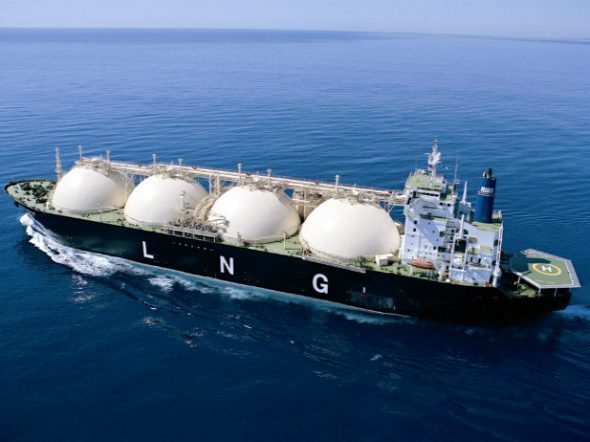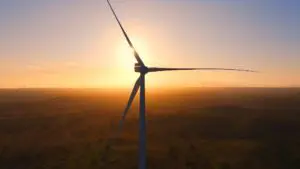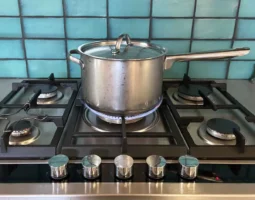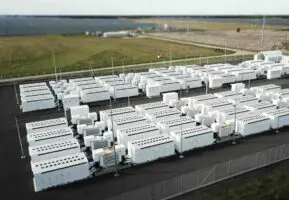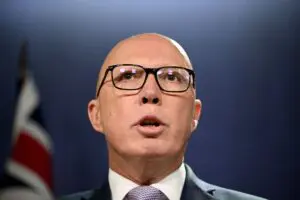The federal government has warned the Australian gas industry it is losing its social license after the release of a damning report from Australia’s competition watchdog painted a picture of a market operating outside of the rules, and well outside the interests of struggling Australian energy users.
The Gas Inquiry 2017-2025 interim report released on Monday by the Australian Competition and Consumer Commission finds uncompetitive and damaging behaviour by major players in Australia’s LNG domestic and export markets has actually gotten worse in the midst of the energy crisis.
It cites numerous complaints by commercial and industrial gas users over events in May and June, and multiple instances of what it calls “egregious behaviour” and potentially abuses of market power.
It adds to the concern about the actions and moral compass of the fossil fuel industry in its response to the recent electricity market crisis that prompted an unprecedented suspension by the Australian Energy Market Operator.
Critics say that the market has lost all perspective as the gas producers take more out of the market than they put into it, pocketing windfall profits as prices surge for household and industrial consumers.
There have been multiple warnings, from regulators and now the government, that the gas industry is in danger of losing its social license.
“The [ACCC] findings are deeply concerning and I urge gas producers to do the right thing by Australians,” federal Treasurer Jim Chalmers said in a statement on Monday.
“It’s critical that our domestic gas supply is secure and competitively priced, particularly when households and businesses are under extreme pressure.”
However, some in the market are concerned that the government and regulators are still obsessed with securing more gas supply, rather than looking at cheaper and cleaner alternatives – such as efficiency and electrification programs.
Others say that – given the windfall profits made by the gas industry at the expense of consumers – that they should be subject to a windfall tax.
“The ACCC report highlights, yet again, there is no gas production shortage in eastern Australia. Production has trebled since 2015 and we – domestic consumers and domestic industry – use less than a third of this production,” said Tim Buckley, the head of Climate Energy Finance.
“Two thirds of east Australia’s fossil gas production is exported, and the absence of any effective price or volume regulations … means the domestic market is held to ransom, paying at or above export price parity. The gas cartel has manufactured an east Australia energy crisis, all while they are war profiteering.”
“Now is the time for a carbon export super profits tax, and a domestic gas reservation.
“A carbon export tax would provide an immediate price signal to supply domestic gas customers first, and would immediately lower the price. The bigger the export tax impost, the bigger the reduction to domestic customers to use our own gas.”
The ACCC says gas customers ranging from major users to smaller manufacturers have this year reported a higher degree of difficulty in locking in supply, due to a mix of high offer prices, reduced contracting flexibility and unfavourable selling practices.
The report also finds that LNG exporters are not engaging with the domestic market in the spirit of a Heads of Agreement signed in early 2021, which commits them to offer uncontracted gas to the domestic market first on internationally competitive market terms before it is exported.
“We are very concerned at reports of even higher prices being offered to C&I users in April and May 2022, with reports of gas price offers as high as $21.20/GJ,” the report says.
“We are also concerned with the extremely high prices observed in domestic spot markets since May 2022, along with high LNG prices, which may flow through to long term contract prices.”
The ACCC says users are complaining about both reduced flexibility in contract terms, and frequent revisions to offers, including instances of prices being raised an hour after an offer was accepted.
More specific complaints on dodgy pricing behaviour – including suppliers providing significantly outdated data to make offers appear more attractive than they really were – were “particularly egregious,” the report said.
The report says an increasingly number of C&I customers, and particularly small and medium manufacturers, are warning that gas price increases are significantly impacting their business operations and directly threatening their ability to survive.
“If we don’t get some level of control or supply in the market it will be very difficult for manufacturers in Australia,” one user reportedly told the ACCC.
One of the key problems identified in the report is the high level of market concentration, the ACCC noting that LNG exporters and associates had influence over almost 90 per cent of the proven and probable reserves in the east coast in 2021 through direct interests, joint ventures and exclusivity arrangements.
“With the high degree of concentration in this part of the market, we have observed that joint ventures, joint marketing and exclusivity arrangements are contributing to the lack of effective upstream competition in the east coast,” said ACCC chair Gina Cass-Gottlieb in a statement.
“They may also increase the risk of coordinated conduct and increase the market power of the LNG exporters. This is particularly concerning given the current supply conditions and the reliance on the LNG exporters to meet domestic supply.”
Of the 1981 petajoules (PJ) of gas the east coast is expected to produce in 2023, the report says 1299 PJ, or 65.6 per cent, is forecast to be exported overseas under long term contacts.
LNG exporters are also expected to produce a further 167 PJ over what they require to meet their contractual commitments, and the ACCC notes that this gas is not contractually committed and could be supplied into either the domestic market or the international LNG market.
The regulator notes that “a well-functioning Heads of Agreement” should ensure that LNG exporters make gas broadly and transparently available to all domestic users at competitive prices, in volumes and for periods suitable to buyers’ needs.
But Cass-Gottlieb says the current HoA is not having this effect.
“We are concerned that domestic gas users don’t always have reasonable notice of these offers, and that LNG exporters do not make counter-offers to bids, which could indicate they are not seriously engaging in the domestic market,” she said.
Encouragingly, the federal Labor government is showing signs of wanting to fix the problems, with federal Treasurer Jim Chalmers in June urging the ACCC advise it on reforms needed to stop anti-competitive or false and misleading conduct.
And on Monday, federal resources minister Madeleine King said the Albanese government had decided to review and renegotiate both the Australian Domestic Gas Security Mechanism (ADGSM) and the Heads of Agreement with LNG exporters.
King said a “notice of intent” on the ADGSM – also known as the gas trigger – could be put in place by the end of August, marking the first time ever the government will have used the intervention to prevent uncontracted gas from being exported.
“This is [gas companies’] opportunity to demonstrate that there won’t be a domestic shortfall next year,” King said on Monday.
“The Albanese government will do whatever is needed to make sure Australians have ongoing access to the gas and energy sources that belong to the people of Australia.”

